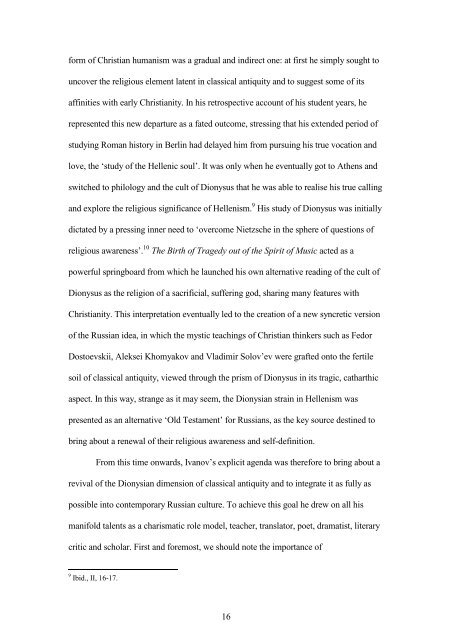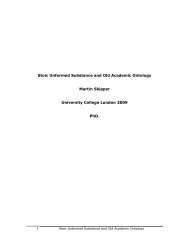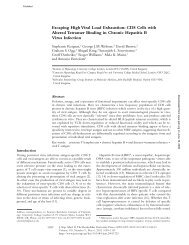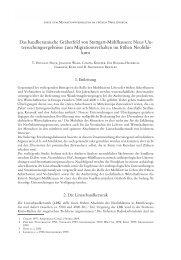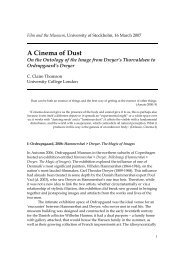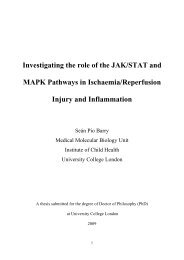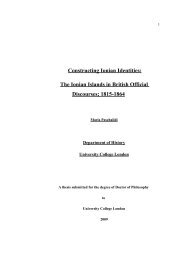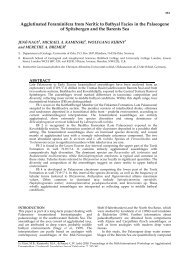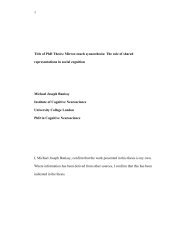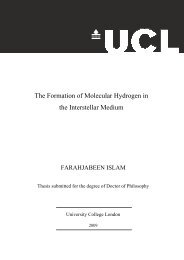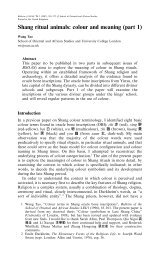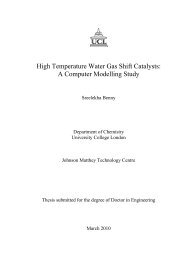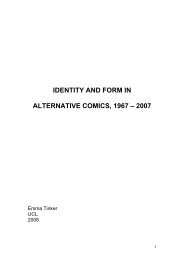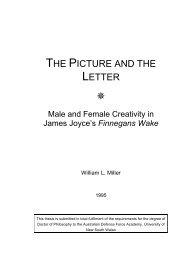Vyacheslav Ivanov and C.M. Bowra: a ... - UCL Discovery
Vyacheslav Ivanov and C.M. Bowra: a ... - UCL Discovery
Vyacheslav Ivanov and C.M. Bowra: a ... - UCL Discovery
You also want an ePaper? Increase the reach of your titles
YUMPU automatically turns print PDFs into web optimized ePapers that Google loves.
form of Christian humanism was a gradual <strong>and</strong> indirect one: at first he simply sought to<br />
uncover the religious element latent in classical antiquity <strong>and</strong> to suggest some of its<br />
affinities with early Christianity. In his retrospective account of his student years, he<br />
represented this new departure as a fated outcome, stressing that his extended period of<br />
studying Roman history in Berlin had delayed him from pursuing his true vocation <strong>and</strong><br />
love, the ‘study of the Hellenic soul’. It was only when he eventually got to Athens <strong>and</strong><br />
switched to philology <strong>and</strong> the cult of Dionysus that he was able to realise his true calling<br />
<strong>and</strong> explore the religious significance of Hellenism. 9 His study of Dionysus was initially<br />
dictated by a pressing inner need to ‘overcome Nietzsche in the sphere of questions of<br />
religious awareness’. 10 The Birth of Tragedy out of the Spirit of Music acted as a<br />
powerful springboard from which he launched his own alternative reading of the cult of<br />
Dionysus as the religion of a sacrificial, suffering god, sharing many features with<br />
Christianity. This interpretation eventually led to the creation of a new syncretic version<br />
of the Russian idea, in which the mystic teachings of Christian thinkers such as Fedor<br />
Dostoevskii, Aleksei Khomyakov <strong>and</strong> Vladimir Solov’ev were grafted onto the fertile<br />
soil of classical antiquity, viewed through the prism of Dionysus in its tragic, catharthic<br />
aspect. In this way, strange as it may seem, the Dionysian strain in Hellenism was<br />
presented as an alternative ‘Old Testament’ for Russians, as the key source destined to<br />
bring about a renewal of their religious awareness <strong>and</strong> self-definition.<br />
From this time onwards, <strong>Ivanov</strong>’s explicit agenda was therefore to bring about a<br />
revival of the Dionysian dimension of classical antiquity <strong>and</strong> to integrate it as fully as<br />
possible into contemporary Russian culture. To achieve this goal he drew on all his<br />
manifold talents as a charismatic role model, teacher, translator, poet, dramatist, literary<br />
critic <strong>and</strong> scholar. First <strong>and</strong> foremost, we should note the importance of<br />
9 Ibid., II, 16-17.<br />
16


